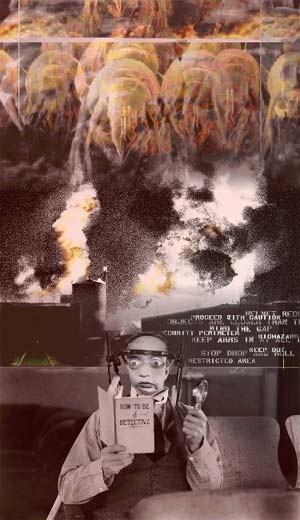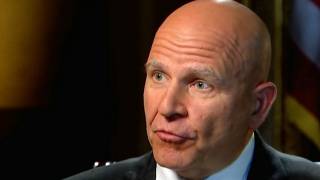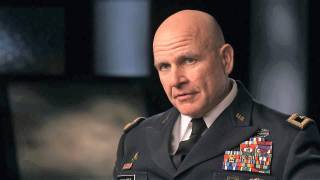Master of our Domain
Source: rigint.blogspot.com
 |
There's a Kids in the Hall sketch in which Mark McKinney plays a loner who's injured his toe. By the swelling, the pus and the change of colour he knows it needs attention, but he can't get motivated to go to the hospital, because "as it is, I'm fascinated by the process!" His leg has gone numb below the knee, and he can stick a fork in it and not feel a thing. "Now that," he says, "is interesting!"
Here's the thing.
In the dying days of Hillary Clinton's campaign, a wistful and perhaps at last unhinged Bill liked to say how there comes a time when we know we have more yesterdays than tomorrows. For civilizations, too. And the borrowedness of our moments of plenty should be, finally, achingly manifest.
Agricultural soils are being eroded at a rate 10 to 40 times that of soil formation. (Iowa alone has lost half of its topsoil in the last 150 years.) The ingestion and absorption of industrial toxicities has contributed to an endocrine disruption that's resulted in a 40% decline in sperm count in 50 years. And the atrocities of global industry has so contaminated the milk of Inuit mothers that it can be categorized as hazardous waste.
Energy and food are being priced out of reach of the poor. (I mean our poor: the genetic detritus of developed nations. The rest? Let them eat mud cakes. It may be the end of the world as we know it, but it’s still the world they have always known.) Like a deleted scene from Children of Men, a pray-in was held five weeks ago at a San Francisco Chevron station to beseech God for lower fuel prices. Gas has risen about 40 cents since. Demand for cheap and "green" biofuels is devastating forests, and stealing food and habitat from the other poor. Besides other things, Soylent Green is fuel efficient.
Climatologists are throwing out their most pessimistic forecasts, since reality has already outstripped them. More carbon dioxide is being discharged into the atmosphere now than even the worst-case scenario in last year's assessment by the Intergovernmental Panel on Climate Change. "We're seeing events predicted for the end of the 21st century happening already," Adelaide University's Barry Bock told the Canberra conference Imagining the Real Life on a Greenhouse Earth, and anticipates a temperature rise of six degrees. Such a spike would mimic the conditions of the Permian Extinction of 251 million years ago, which came as close as anything has to eradicating all life on Earth. "Oxygen isotopes in rocks dating from the time suggest that temperatures rose by six degrees, perhaps because of an even bigger methane belch [the release of the ocean's methane hydrates] than happened 200 million years later in the Eocene":
Sedimentary layers show that most of the world's plant cover was removed in a catastrophic bout of soil erosion. Rocks also show a "fungal spike" as plants and animals rotted in situ. Still more corpses were washed into the oceans, helping to turn them stagnant and anoxic. Deserts invaded central Europe, and may even have reached close to the Arctic Circle.
One scientific paper investigating "kill mechanisms" during the end-Permian suggests that methane hydrate explosions "could destroy terrestrial life almost entirely". Acting much like today's fuel-air explosives (or "vacuum bombs"), major oceanic methane eruptions could release energy equivalent to 10,000 times the world's stockpile of nuclear weapons.
I don't know if time's speeding up or we're winding down, but Nostradamus doesn't seem of much use anymore. The last few months have felt, to me, like the closing of a door. Ahead is another door, only one, and we have no choice but to walk through it.
As it is, I'm fascinated by the process! Which, I suppose happily enough, can still appall me.
Conspiracies, too, fascinate, and are the reality of parapolitical culture, but conspiracy culture is its reality television. Even if someone does bust the conspiracy wide open! as Alex Jones has promised that so many of his broadcasts would do, justice would be served to the same extent The Bachelor is genuinely searching for true love. Seven years gone since September 11, and the singular accomplishment of "9/11 Truth" appears to have been the creation of another Great American Pastime. Sirhan could not have killed Robert Kennedy, but four decades later he's still in prison. And even when an American Court found the federal government and its agencies to be co-conspirators in the death of Martin Luther King, the judgment left no mark upon the guilty.
The Internet is often thought an egalitarian blessing by those who would hold high criminals accountable, yet the only accounting rendered is online. I don't think the guilty regard this as an unfortunate development. I think we've been corralled into cyberspace, taken as freedom its "free speech zones," and adopted its virtual and vulnerable bantustans as our "domains." (Appropriately so called, since its mastery entered mass culture as a euphemism for masturbaton.) We can win the blog wars, but we may as well have been playing World of Warcraft for all the difference it will make when the power goes out and we lose our connection. The connection for which we may have forsaken many others of much higher worth.
So this is my dilemma, and my paralysis. It's not every day you get to spectate the real-time collapse of a planetary civilization and biosphere. (Or, I suppose I should say, I remember a time when it wasn't.) But watching this unfold with fascination feels complicit and worse than if I were blithely ignorant, and analyzing it at this seeming late stage futile and ridiculous. What's important now, what's more important than ever, are the close-to-home matters: being a good father and husband, and learning how to best cushion the crash of our coddled urban lives.
That's why I'd lost my words. I'm getting them back, and I'll be posting with regularity again, which feels good because I'm a writer and I don't know what else to do with them. But my regard for them has changed.
It's like Harvey Pekar says, in the August issue of American Splendor:
"I thought about it and I realized that i might be part of the last generation that has experienced 'normal life' for some time... I try to think of positive things, you know, like I'm happy about what's been happening with my writing. But in the face of the upcoming disaster everything seems futile."
I'd have rather posted something else, but I couldn't write anything until I'd written this.
Article from: http://rigint.blogspot.com/2008/06/master-of-our-domain.html






















